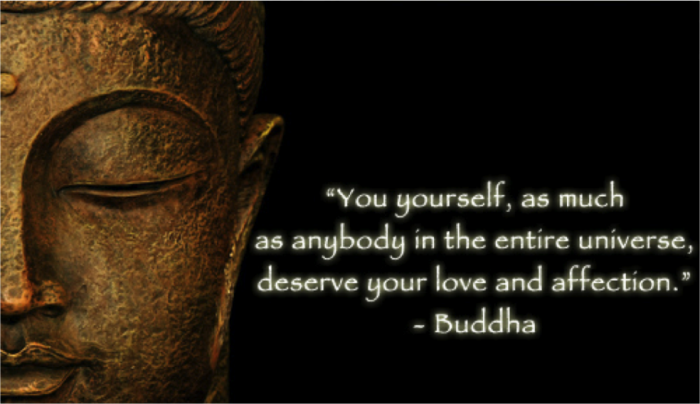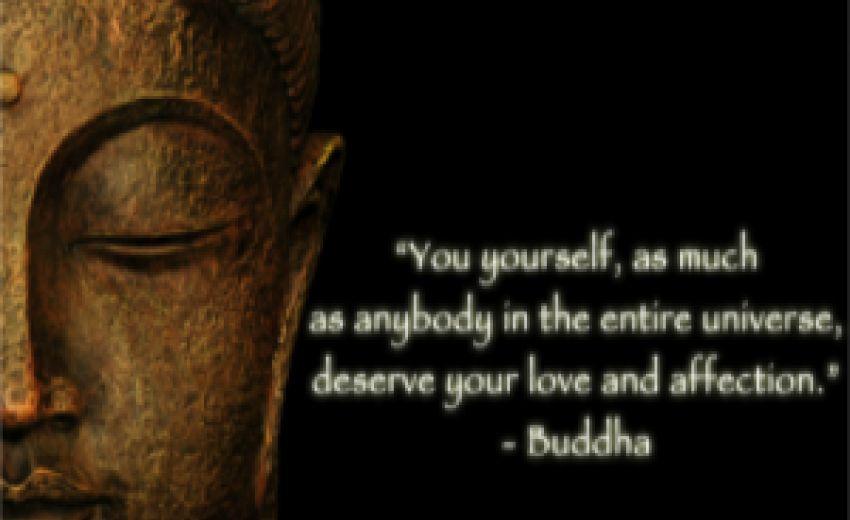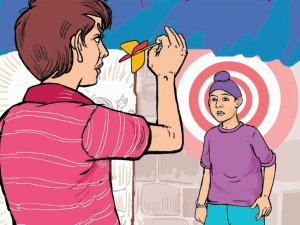Show compassion to your own self
Harveen Kaur
I have now added a new category on the blog – “book inspiration”. This is because sometimes I read things that I feel are so beautiful that it should be shared. So here is the first post in this category taken from the book “Eat, pray, love” by Elizabeth Gilbert:
March 21, 2016: On my ninth day of silence, I went into meditation one evening on the beach as the sun was going down and I didn’t stand up again until after midnight. I remember thinking, “This is it, Liz.” I said to my mind, “This is your chance. Show me everything that is causing you sorrow. Let me see all of it. Don’t hold anything back.” One by one, the thoughts and memories of sadness raised their hands, stood up to identify themselves. I looked at each thought, at each unit of sorrow, and I acknowledged its existence and felt (without trying to protect myself from it) its horrible pain. And then I would tell that sorrow, “It’s OK. I love you. I accept you. Come into my heart now. It’s over.” I would actually feel the sorrow (as if it were a living thing) enter my heart (as if it were an actual room). Then I would say, “Next?” And the next bit of grief would surface. I would regard it, experience it, bless it, and invite it into my heart, too. I did this with every sorrowful thought I’d ever had – reaching back into years of memory – until nothing was left.
Then I said to my mind, “show me your anger now.” One by one, my life’s every incident of anger rose and made itself known. Every injustice, every betrayal, every loss, every rage. I saw them all, one by one, and I acknowledged their existence. I felt each piece of anger completely, as if it were happening for the first time, and then I would say, “come into my heart now. You can rest there. It’s safe now. It’s over. I love you.” This went on for hours, and I swung between those mighty poles of opposite feelings – experiencing the anger thoroughly for one bone-rattling moment, and then experiencing a total coolness, as the anger entered my heart as if through a door, laid itself down, curled up against its brothers and gave up fighting.
Then came the most difficult part. “Show me your shame,” I asked my mind. Dear God, the horrors I saw then. A pitiful parade of all my failings, my lies, my selfishness, jealousy, arrogance. I didn’t blink from any of it though. “Show me your worst,” I said. When I tried to invite the units of shame into my heart, they each hesitated at the door, saying, “No – you don’t want me in there… don’t you know what I did?” And I would say, “I do want you. Even you. I do. Even you are welcome here. It’s OK. You are forgiven. You are a part of me. You can rest now. It’s over.”
When all this was finished, I was empty. Nothing was fighting in my mind anymore. I looked into my heart, at my own goodness, and I saw its capacity. I saw that my heart was not even nearly full, not even after having taken in and tended all those calamitous urchins of sorrow and anger and shame; my heart could easily have received and forgiven even more. Its love was infinite.

I knew then that this is how God loves us all and receives us all, and that there is no such thing in this universe as hell, except maybe in our own terrified minds. Because if even one broken and limited human being could experience even one such episode of absolute forgiveness and acceptance of her own self, then imagine – just imagine! – what God, in all His/Her (added by me, as in sikhi, God is not limited to any gender) eternal compassion, can forgive and accept.
I also knew somehow that this respite of peace would be temporary. I knew that I was not yet finished for good, that my anger, my sadness and my shame would all creep back eventually, escaping my heart, and occupying my head once more. I knew that I would have to keep dealing with these thoughts again and again until I slowly and determinedly changed my whole life. And that this would be difficult and exhausting to do. But my heart said to my mind in the dark silence of that beach: “I love you, I will never leave you, I will always take care of you.” The promise floated up out of my heart and I caught it in my mouth and held it there, tasting it as I left the beach and walked back to the little shack where I was staying. I found an empty notebook, opened it to the first page – and only then did I open my mouth and speak those words into the air, letting them free. I let those words break my silence and then I allowed my pencil to document their colossal statement onto the page:
“I love you, I will never leave you, I will always take care of you.”
Those were the first words I ever wrote in that private notebook of mine, which I would carry with me from the moment forth, turning back to it many times over the next two years, always asking for help – and always finding it, even when I was most deadly sad or afraid. And that notebook, steeped through with that promise of love, was quite simply the only reason I survived the next years of my life.
I think that to accept and show compassion to every aspect of ourselves is a essential part to become a better person. When we accept the different emotions we have and acknowledge their existence, we will be can discover their roots. If we change our emotions, it will probably be a temporary change, but if we change its roots, the change will be more permanent, and we will develop into better human beings. I think gurbani conveys that a lot of emotions spring out from our ego. When we are deeply involved in those emotions, its more difficult to see its connection with the ego. However when we have accepted their existence, it will become easier to see them with a detached perspective and understand its connection with the ego. I shared some of the associations this book excerpt gave me. What associations did you get?





